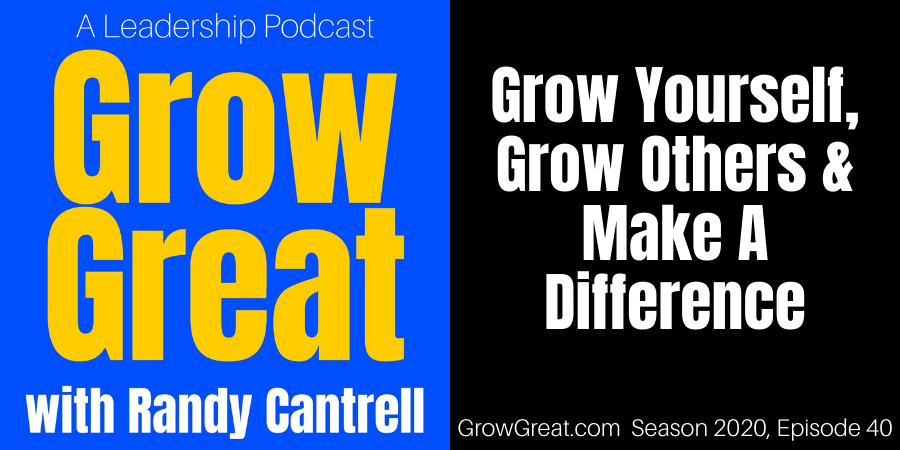Podcast: Play in new window | Download (Duration: 12:13 — 11.2MB)
Subscribe: Apple Podcasts | Spotify | RSS | More
Van is a manager. Experienced. Being a boss is important to Van. He enjoys having people answer to him.
Beth is a manager. Inexperienced. She never thinks about being “the boss.” She’s busy helping her direct reports do better.
Based only on this information, which one do you think is making a difference – a POSITIVE difference?
Of course. We all in unison say, “BETH.” And we’d be correct.
If we can all so readily see this, do you wonder why Van can’t? We’re prone to think, “If only Van could see that it’s not about being the boss.” But I’ve already told you THAT is what he enjoys. That’s an understatement really because it’s what he most enjoys! Because that’s what matters most to him, that directs all his choices, decisions, action, and language.
We lead people.
We manage the work.
That’s my viewpoint. Not everybody agrees. Van doesn’t. He believes in managing people. As for the work, well, if it’s done well then Van is quick to take credit. If it doesn’t, he can distance himself from the result by blaming the people. He covers all the bases that way.
I grew up in my business leadership childhood admiring people like Jack Welch of GE, Andy Grove of Intel, Sam Walton of Walmart, Robert Townsend of Avis, and Fred Smith of FedEx. CEOs and founders who built great organizations were always topping my list. I’d study others like Harold Geneen who could achieve financial success through tyranny, but I’d always wonder, “How much more successful could they have been if they’d grown themselves, their people and worked hard to have a positive influence on others?”
My interest in high-performing culture began with the thought – the question – how much better can I be? How much better can I help others be? How much more can we get done together?
What might have been was always my biggest apprehension, fear, or regret.
From that was born my lifelong fascination with “the ideal outcome.” The book I’ll write one day will likely bear that title.
I’m especially fixated on anticipating and pursuing the ideal outcome because I know that’s where the joy and fun are. Because that’s also where productivity, efficiency and effectiveness are found.
Contrast that with the perspective Van, and many others, hold. Control. Constraints. Restrictions.
“Everything goes through me,” says Van to his team. It’s about authority, power, and all the other behaviors that insure people understand he’s the boss. Sadly, the reality for Van – the one he has no awareness of – is that the more control he exerts the less he truly has. But he sees what he most wants to see. Even though it isn’t working for him.
So let’s flip this thing and talk about how we can stop strangling people by growing ourselves as leaders, by growing others, and by making a difference for our organization through our positive impact on others.
Good leaders require good work. It’s a reasonable and correct expectation.
To accomplish that work, people have the right to be free to perform well. They also have the right to expect resources that afford them the opportunity to succeed in achieving good, if not GREAT work.
One of the biggest hurdles to good work is organizational constraint – all the speed bumps or roadblocks we put in their way because we think command and control are the paths forward. The reality is that when we free people to think, behave, and act in ways where they can achieve more, we free them up to be more creative and figure out how to do things better. In turn, that relieves management of the unnecessary burdens of command and control.
Happy Holidays From Inside The Yellow Studio!

 About the hosts: Randy Cantrell brings over 4 decades of experience as a business leader and organization builder. Lisa Norris brings almost 3 decades of experience in HR and all things "people." Their shared passion for leadership and developing high-performing cultures provoked them to focus the Grow Great podcast on city government leadership.
About the hosts: Randy Cantrell brings over 4 decades of experience as a business leader and organization builder. Lisa Norris brings almost 3 decades of experience in HR and all things "people." Their shared passion for leadership and developing high-performing cultures provoked them to focus the Grow Great podcast on city government leadership.
The work is about achieving unprecedented success through accelerated learning in helping leaders and executives "figure it out."
